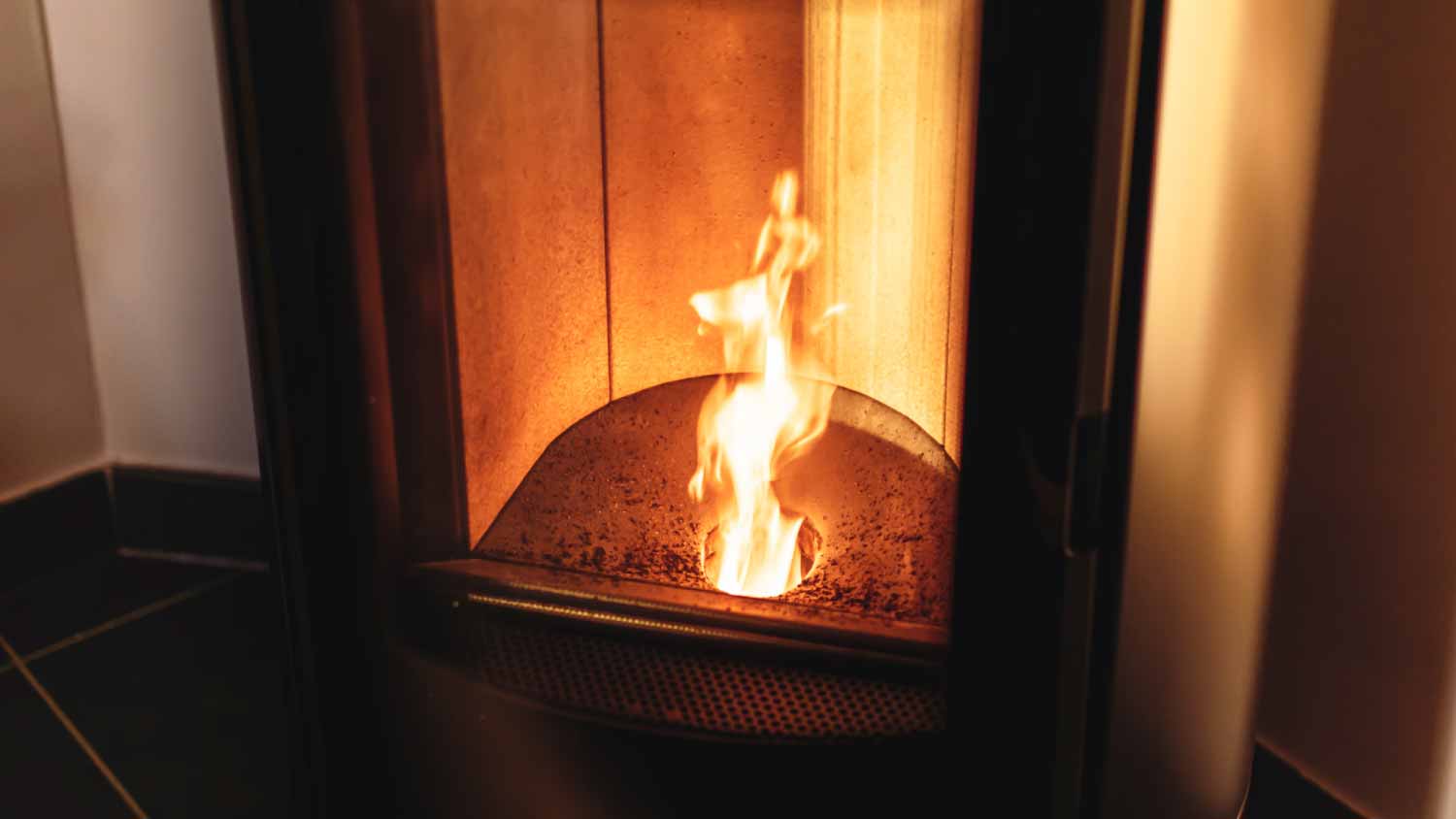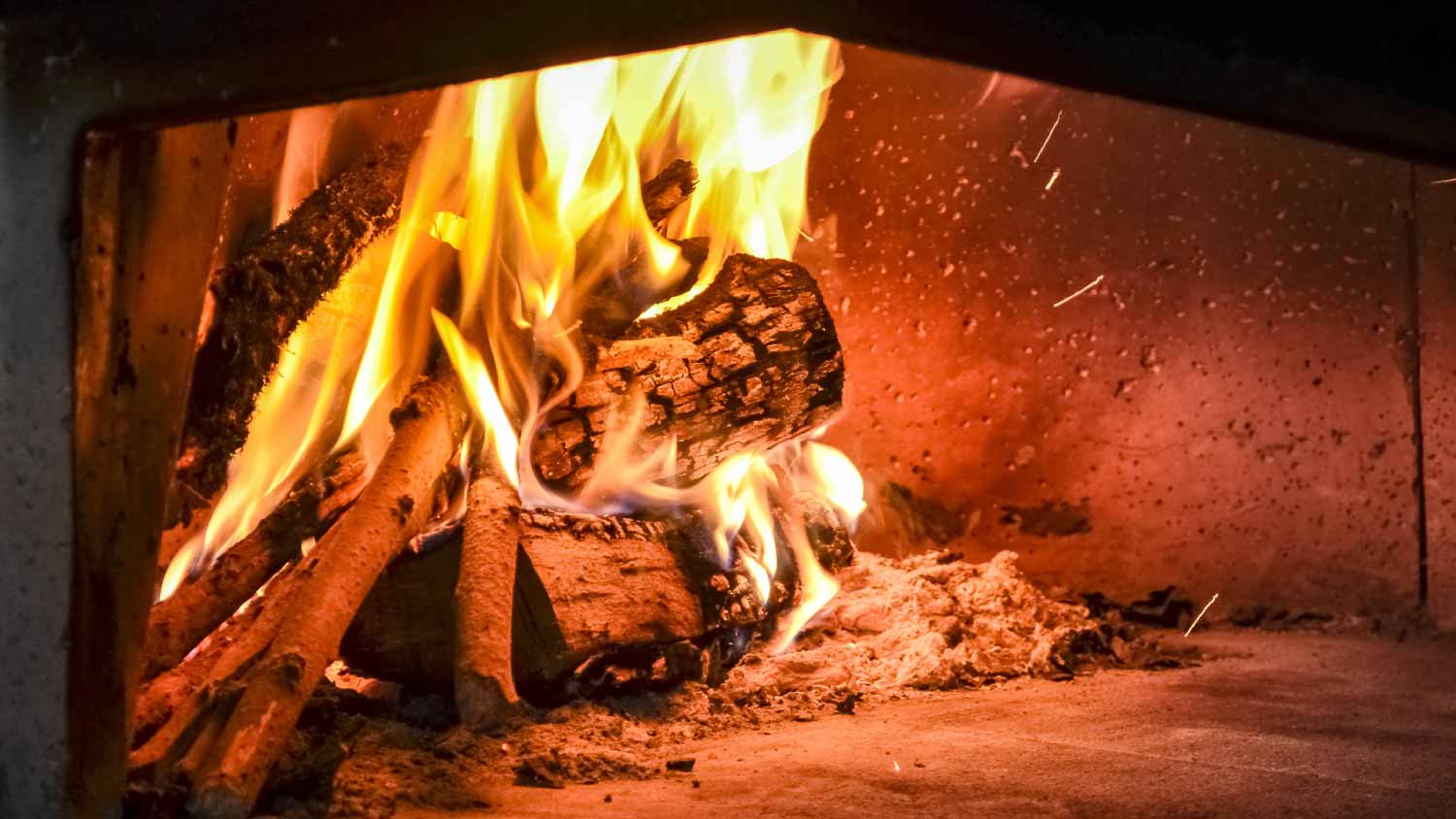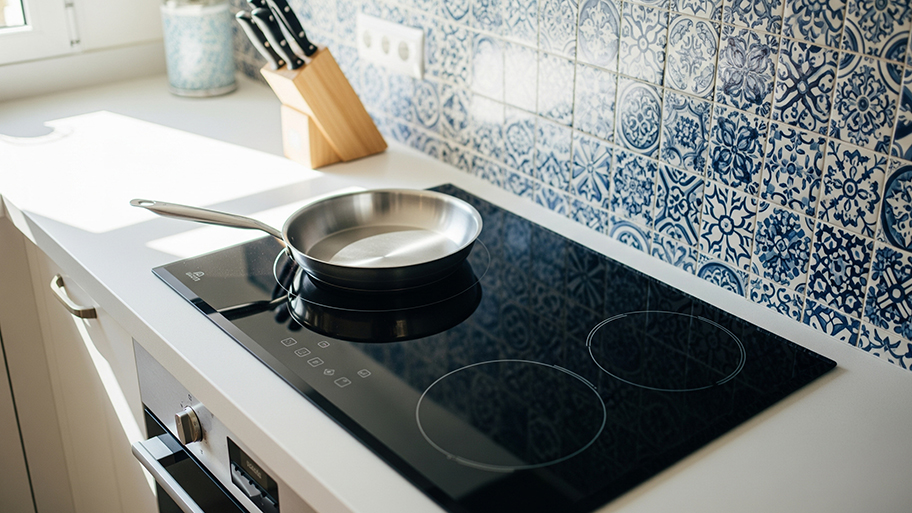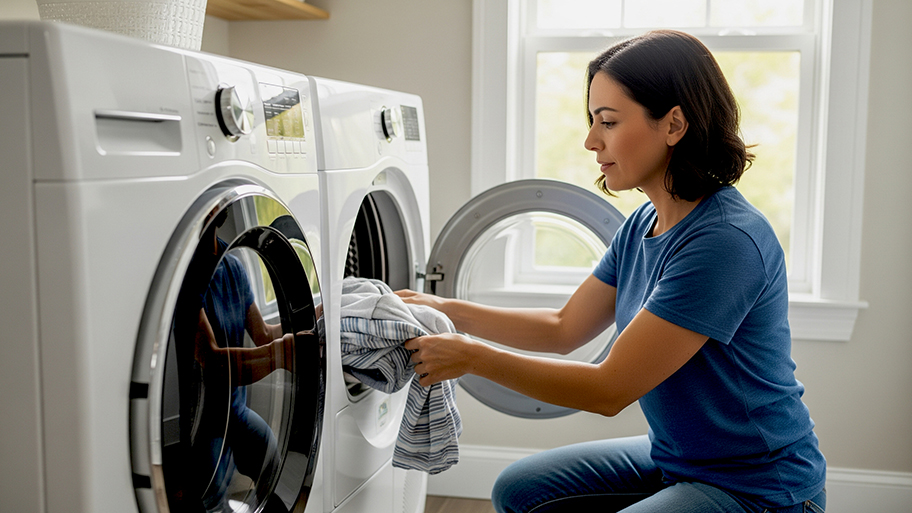
Depending on repair needs and machine age and type, the cost to replace a heating element in a dryer can vary. Learn the average repair costs.
ItŌĆÖs a hot discussion topic for homeowners


Pellet stoves are energy-efficient and eco-friendly.
Wood stoves offer a cozier ambiance.
Pellet stoves are easier to use.
Wood stoves are easier to maintain.
Trying to decide between a pellet stove versus a wood stove? While both will create a warm and cozy space during the fall and winter months, each has unique pros and cons to consider. Wood stoves provide more ambiance and require less maintenance, for example, while pellet stoves are energy-efficient and offer precise temperature control. Keep reading to learn more about wood stoves versus pellet stoves and which is best for your home’s heating needs.
The main difference between a pellet stove and wood stove is the type of fuel each uses. A pellet stove burns pellets made from recycled materials to create heat. It produces minimal ash and smoke, making it an eco-friendly heating appliance. A wood stove is like a traditional fireplace in that it burns wood logs to produce both heat and ambiance, thanks to the beauty of the flickering flames and glowing embers.

A pellet stove has an auger that delivers pellets from a hopper into a combustion chamber, where they're burned. A fan distributes warm air throughout the room. Most modern pellet stoves have a control panel so you can set them to the exact temperature you’d like.
Is a pellet stove right for your home’s heating needs? It might be if you prefer having more control over heat production. Let’s examine the pros and cons of this appliance.
| Pros | Cons |
|---|---|
| Easy to install | Won’t work during a power outage |
| Can set a precise temperature | Requires weekly maintenance |
| Environmentally friendly | Not much ambiance |
Best for:
Households that want to reduce their carbon footprint
Homes that don’t have a full chimney setup
Homes with a backup generator to ensure operation during power outages
Let’s take a closer look at the advantages of pellet stoves:
Easy to install. Pellet stoves need electricity to operate, along with proper ventilation. But the setup is not nearly as complex as what’s needed for a wood-burning stove.
Can set a precise temperature. Once you light a pellet stove—and as long as you keep the hopper full of pellets—you can set and maintain the temperature of your choosing.
Environmentally friendly. Wood pellets are made from recycled materials, and they create minimal ash as they burn. This makes pellet stoves an eco-friendly option for heating your home.
Now, let’s dive into some of their disadvantages:
Won’t work during a power outage. Again, pellet stoves need electricity to run, so you might be out of luck during a power outage unless you have a backup generator.
Requires weekly maintenance. Even with minimal ash produced, you still have to clean out the ash box regularly to keep your pellet stove running.
Not much ambiance. Pellet stoves and propane stoves are known more for their utility than their aesthetics. In short, nothing beats the look and smell of wood-burning stoves.

Is a wood-burning stove right for your home’s heating needs? Stoking logs on a hearth has long been the traditional way of adding cozy warmth to a home. Let’s take a look at the pros and cons of this appliance.
| Pros | Cons |
|---|---|
| Superior warmth | Gathering firewood is a chore |
| Fewer parts to operate | Requires more attention to operate |
| Enhanced aesthetic | Creosote buildup is hazardous |
Best for:
Homeowners who want warmth and ambiance
Households that rely less on electricity
Let’s take a closer look at the advantages of wood-burning stoves:
Superior warmth. Wood stoves burn hot, which is why you probably want one. Give yourself a learning curve to see just how many logs you need to get warm.
Fewer parts to operate. Aside from learning how to safely stoke the logs, there’s not much else to do
Enhanced aesthetic. In the absence of an actual wood-burning fireplace, nothing warms up the look and feel of a home like a wood-burning stove.
Now, let’s dive into some of their disadvantages:
Gathering wood is a chore. It’s also an arm workout if you’re splitting those logs yourself.
Requires more attention to operate. Unlike a pellet stove that will continue to fuel itself, you will need to add logs to the fire from time to time to keep it going.
Creosote buildup is hazardous. You must schedule an annual chimney inspection and cleaning to keep creosote buildup to a minimum. Otherwise, your fire could become a fire hazard.
Both pellet stoves and wood stoves are effective in providing warmth for your home. However, other factors must be considered in determining which appliance is better for your needs. If you still can’t decide, a local wood and pellet stove repair company can help you narrow down your options.
A wood-burning stove offers more ambiance than a pellet stove by way of flickering flames and glowing embers.
Wood stoves tend to burn hotter than pellet stoves, although your stove’s heat output will be determined by its size, efficiency, and the type and amount of fuel you are using.
Wood stoves and pellet stoves are priced similarly. Depending on the stove’s style and level of efficiency, you may spend more or less on yours. Fuel is an ongoing cost, but you can buy wood logs or pellets in bulk to save money.
Even if you enjoy splitting your own firewood and keeping those flames stoked, it’s a lot easier to pour pellets into the hopper and set the temperature on a pellet stove.
While it’s necessary to clean the ashes out of the firebox and maintain the stovepipe and chimney on a wood stove, it’s less work than maintaining a pellet stove. Do be sure to schedule an annual chimney inspection and cleaning to remove creosote buildup.
Pellets used for fuel are usually made from recycled materials and will not create much ash, whereas stoves that burn firewood create lots of smoke and emissions.
Pellets are easier to obtain and store than wood logs.
From average costs to expert advice, get all the answers you need to get your job done.

Depending on repair needs and machine age and type, the cost to replace a heating element in a dryer can vary. Learn the average repair costs.

Broken glass stove tops are not only unsightly; they can also be dangerous. Use this guide to learn how much glass stove top replacements cost based on factors like size and type.

Replacing a dryer belt costs more than just the part unless you can DIY it. The labor cost can easily surpass 90% of the product cost, so if you are handy with tools, try it yourself first.

This article outlines the top reasons why your electric cooktop may not be working and the most straightforward solutions to each problem.

Your gas oven might not heat up for various reasons, such as problems with the circuit breaker, igniter, or gas supply. You can troubleshoot to figure out why your gas oven won’t heat up, but you may need to reach out to a professional.

If you notice your dryer vent leaking water, you could be prone to mold growth and water damage. Use this DIY guide to remedy the issue right away.